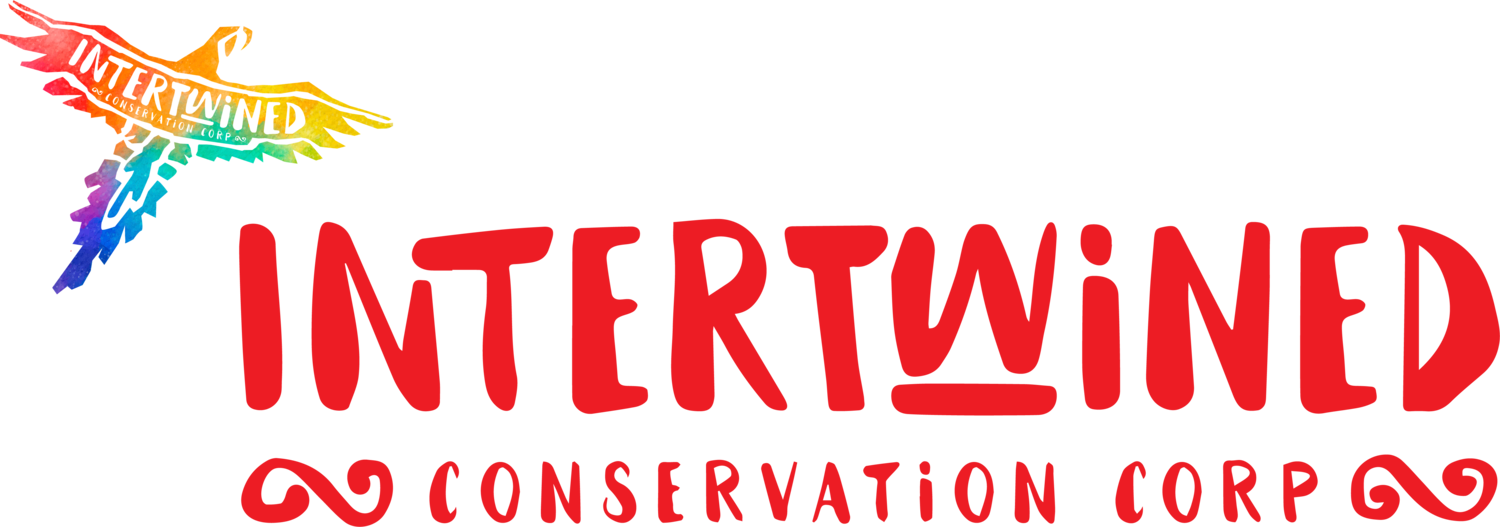Harlequin Frogs and Coffee Plantations-Part 2 Spring 2019 Costa Rica Trip
After finally catching sight of the evasive quetzals on their last day in the quetzal lodge, the Intertwined group ate breakfast once more with their homestay family and set out on a four-and-a-half-hour drive to meet with ProCAT leaders Rosi and Diego. Based in the Talamanca mountains, ProCAT is a Costa Rican nonprofit dedicated to furthering “the research of biological resources and social and cultural development within a framework of sustainability.” They specifically focus on protecting jaguars and the critically endangered harlequin frog, along with the ecosystems they inhabit.
Intertwined is partnering with ProCAT to expand our education program by connecting the students in the Talamanca mountains with the indigenous students we work with in the Golfo Dulce region. The organization’s dual dedication to biodiversity and human communities makes it a perfect partner for us as we seek to develop alternative livelihoods to poaching in these communities.
After introductions, the group made one last stop for supplies before heading to ProCAT’s field station, which was so secluded that they needed to bring in all food and water for the next few days.The area, not open to the public and untouched by tourism, offered a rare view of the pristine jungle that results from good protection. Jenna, Marco, Koby, and Armando spent the night bonding with the ProCAT team, along with the man who manages the land and, rather unexpectedly, Carlos Manuel Rodriguez, the minister of the environment in Costa Rica. The group was excited to discuss Intertwined’s project with him and to gain his enthusiastic support, as he firmly believes that education plays a vital role in saving wildlife.
The second day with ProCAT began with a beautiful hike through a locally grown bamboo forest and a visit to the Río Cotón. ProCAT brought the Intertwined team to a special location to see the harlequin frog, a species thought to be extinct in Costa Rica until researchers discovered it here a few years ago. Different from many other frogs, this species primarily comes out during the day, has dry skin, and only lays about 24 eggs.
The Intertwined group was able to glimpse at one of the frogs—a small creature whose presence actually makes quite a big statement about the health of its eco-system. This species of amphibian is fragile and is therefore a good indicator of water quality and its habitat’s biodiversity. For the Intertwined team, seeing the harlequin frog highlighted ProCAT’s successful conservation work in the area. The frog sighting furthermore emphasized the connectivity between the animals and humans that rely on this shared source of water for life; the same water that sustained this critically endangered frog flowed through aqueducts used by people in the nearby village.
The only downside to the frog sighting was reframed in a positive light by Marco, who noted that the group “got some wonderful little bites from the biodiversity in the area.” His recurrent advice for anyone traveling to Costa Rica is to always bring pants.
Next on the day’s itinerary was a visit to see the coffee plantations that ProCAT supports. The coffee plantations are grown in a responsible and sustainable manner by two local farmers. They are located within the Talamanca mountains and are connected to animal conservation, as they provide a sanctuary for shy mammals and their young, such as peccary herds, tapir, and wild cats. The sustainable farming benefits both the biodiversity of these areas and the human communities as well; farmers sell their product in the U.S. and use the income to support both groups sharing this uniquely pristine jungle.
After two days of seeing ProCAT’s incredible conservation efforts first-hand, the group ended the last night at the top of a mountain overlooking the village and Telamanca mountains they had come to know and love. Off in the distance, the slash-and-burn fate of other jungles offered a reminder of the horrible reality of areas that do not enjoy the same protections. The two teams discussed possibilities for future collaboration to help these ecosystems, pondering ideas of creating alternative jobs for communities relying on poaching and of opportunities to bring together all conservationists in Costa Rica to a workshop to share and grow together.
With a new partnership formed and these long-term goals agreed upon, the Intertwined team bid farewell to their new friends and partners and made their way to their next stop in Pavones, where they would meet with their Education Director in the field.
